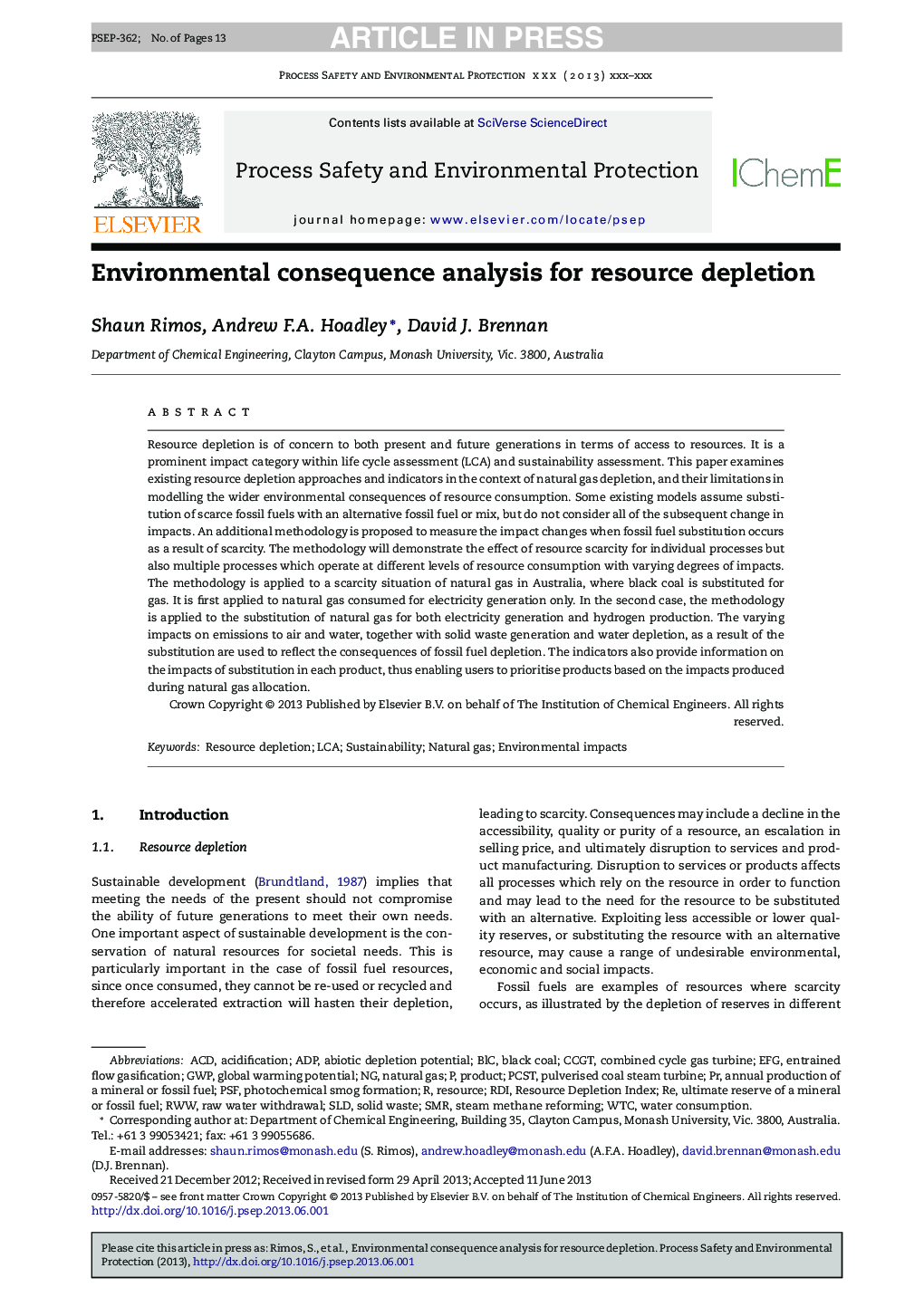| Article ID | Journal | Published Year | Pages | File Type |
|---|---|---|---|---|
| 10373930 | Process Safety and Environmental Protection | 2014 | 13 Pages |
Abstract
Resource depletion is of concern to both present and future generations in terms of access to resources. It is a prominent impact category within life cycle assessment (LCA) and sustainability assessment. This paper examines existing resource depletion approaches and indicators in the context of natural gas depletion, and their limitations in modelling the wider environmental consequences of resource consumption. Some existing models assume substitution of scarce fossil fuels with an alternative fossil fuel or mix, but do not consider all of the subsequent change in impacts. An additional methodology is proposed to measure the impact changes when fossil fuel substitution occurs as a result of scarcity. The methodology will demonstrate the effect of resource scarcity for individual processes but also multiple processes which operate at different levels of resource consumption with varying degrees of impacts. The methodology is applied to a scarcity situation of natural gas in Australia, where black coal is substituted for gas. It is first applied to natural gas consumed for electricity generation only. In the second case, the methodology is applied to the substitution of natural gas for both electricity generation and hydrogen production. The varying impacts on emissions to air and water, together with solid waste generation and water depletion, as a result of the substitution are used to reflect the consequences of fossil fuel depletion. The indicators also provide information on the impacts of substitution in each product, thus enabling users to prioritise products based on the impacts produced during natural gas allocation.
Keywords
Related Topics
Physical Sciences and Engineering
Chemical Engineering
Chemical Health and Safety
Authors
Shaun Rimos, Andrew F.A. Hoadley, David J. Brennan,
